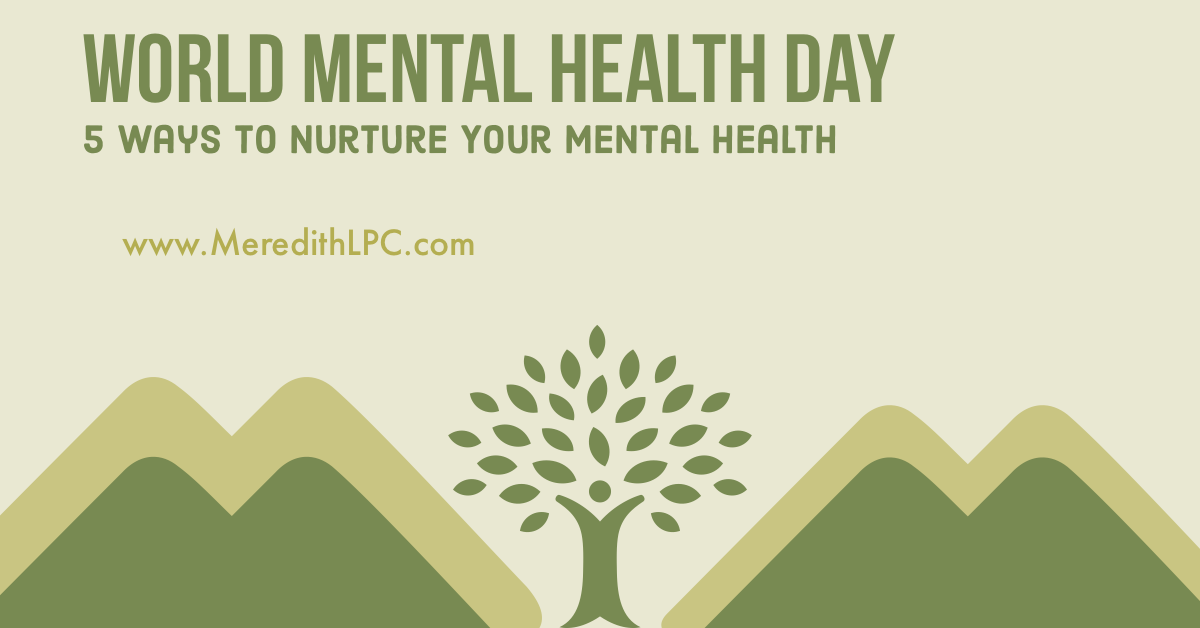5 Ways To Nurture Your Mental Health On World Mental Health Day
October 10th is World Mental Health Day! In the midst of an ongoing pandemic and a divided political climate, there’s likely no better time to prioritize your mental health. Let’s face it- every day is mental health day, because our mental health is always a part of us. So, check out these tips for nurturing your mental health, today and every day.
Move your body. Your mind and your body are connected, so most habits that are good for your physical health will also be good for your mental health. Physical activity looks different for everyone so find what works for you and your needs, and make it fun! Some examples include taking your pet for a walk, swimming, dancing, yoga, taking the stairs, riding a bike, jumping rope, hula hooping, hiking, playing a sport… the possibilities are endless.
Spend time in silence with yourself. With social media, technology, and the 24-hour news cycle, our minds don’t get many opportunities to rest. Set aside time to disconnect from the noise of the world. Turn off all electronics (Yes, Dad, even you!), focus on your breathing, and practice meditation.
Practice self-care. It’s simple: make sure you’re intentionally taking time to do the things you enjoy and the things that make you you!
Give back. Practicing altruism gives people a sense of purpose, builds gratitude, and stimulates “feel good” chemicals in our brain. Identify causes or organizations that you care about and find ways to support them such as raising awareness, attending events, fundraising, volunteering, or donating. In honor of World Mental Health Day, some mental health-related organizations that I support are National Alliance on Mental Illness, The Trevor Project, Darkness to Light, and American Foundation for Suicide Prevention.
Talk. Talk to your friends, talk to your family. Chat with a stranger while waiting in line at the store (from six feet away and while wearing a mask!). Talk with people who are different from you. Talk about your feelings. Talk to a therapist. Research shows that talking can bring a sense of relief, a feeling of catharsis. It can guide you to solutions and significant insights, and can allow you to receive support from others. Conversation creates connection, and social connection can lower anxiety and depression, help us regulate our emotions, and lead to higher self-esteem and empathy.
Related Article: Mental Health Awareness Month: Considerations for Developing a Routine to Support Your Mental Health


